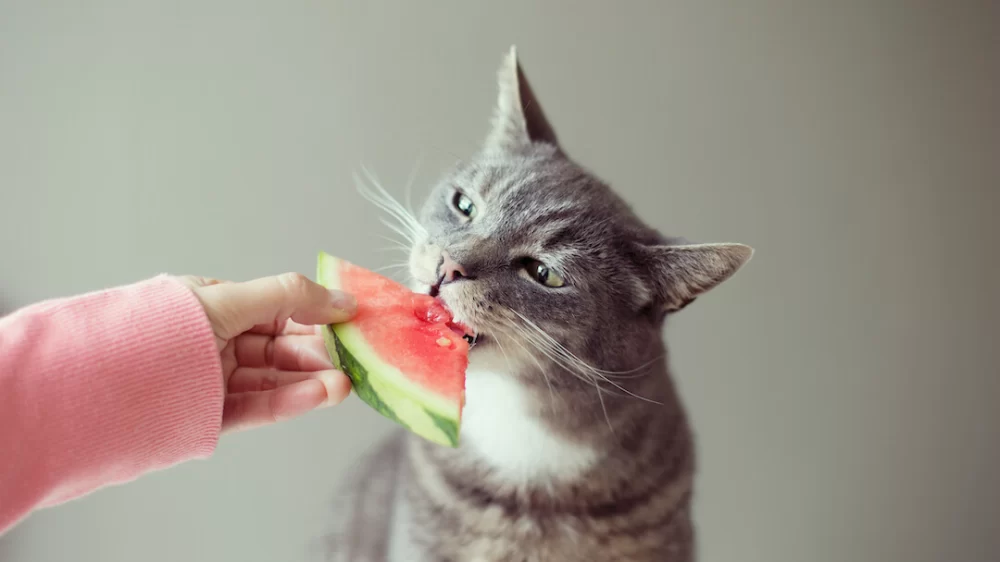Can Cats Eat Honeydew Melon? Exploring the Safety of Honeydew for Cats
As a cat owner, it’s natural to want to share the healthy snacks we enjoy with our furry companions. One of the fruits that often raises questions is honeydew melon. The question I frequently get asked by fellow pet owners is: “Can cats eat honeydew melon?” In this article, I’ll dive into the facts, discussing whether honeydew melon is safe for your cat and the potential risks involved. Along the way, I’ll share some real-life stories of pet owners and their experiences with feeding cats fruit. My own cat, Mittens, loves to watch me snack on fruit. One day, I decided to offer her a small piece of honeydew melon, but I quickly wondered—was it okay for her to eat it? I did some research, and here's what I found.
1. Is Honeydew Melon Safe for Cats to Eat?
The short answer is yes, honeydew melon is safe for cats to eat in moderation. Honeydew is non-toxic to cats, which means that if your cat sneaks a small piece of melon or you offer it to them as a treat, it shouldn’t cause any immediate harm. However, as with all treats, moderation is key. While honeydew melon doesn’t pose any direct threats to your cat’s health, it’s important to consider a few factors when introducing it into their diet. Honeydew melon is high in water content, which can be beneficial for your cat’s hydration. It’s a refreshing snack, especially during the warmer months. But even though it’s safe, not all cats will enjoy the taste or texture of honeydew. Some cats may not be interested in fruit at all, and that’s perfectly fine.
2. Nutritional Value of Honeydew Melon
While honeydew melon is not a necessary part of a cat’s diet, it does contain several nutrients that can benefit your pet in small amounts. Here are some of the nutritional aspects of honeydew melon that you may want to keep in mind:
- Water Content: Honeydew melon is packed with water (about 90%), which can help keep your cat hydrated, especially during hot weather.
- Vitamin C: This fruit contains a moderate amount of vitamin C, an antioxidant that helps protect cells from damage. However, cats can produce their own vitamin C, so this isn't essential in their diet.
- Fiber: Honeydew contains some fiber, which could assist with digestion. But cats are obligate carnivores, and fiber isn’t necessarily a crucial part of their diet.
- Natural Sugars: While honeydew is low in sugar compared to other fruits, it still contains natural sugars that can contribute to your cat's daily calorie intake. Too much sugar can lead to obesity and other health problems over time.
3. Potential Risks of Feeding Honeydew to Cats
Although honeydew melon is not toxic to cats, there are some potential risks to consider when feeding it to your pet. Here’s what I learned from my research:
- Gastrointestinal Upset: Some cats may have a sensitive stomach and could experience digestive issues, such as diarrhea or vomiting, if they eat too much honeydew melon. It’s important to start with a small piece and observe your cat’s reaction.
- Choking Hazard: The rind of the honeydew melon is tough and could pose a choking risk if your cat tries to eat it. Always remove the rind and offer only small, bite-sized pieces of the melon’s flesh.
- Allergies: Although rare, some cats could be allergic to certain fruits. If you notice any signs of an allergic reaction—such as swelling, hives, or difficulty breathing—after feeding your cat honeydew melon, contact your veterinarian immediately.
4. How Much Honeydew Should You Feed Your Cat?
When offering honeydew melon to your cat, it’s essential to keep the portions small. A couple of bite-sized pieces should be more than enough as an occasional treat. As with any treat, honeydew melon should not replace your cat’s regular diet of high-quality cat food. Cats are obligate carnivores, meaning their bodies are designed to process animal-based proteins, not fruits. Personally, I give Mittens a small piece of honeydew once in a while as a fun snack, but I always make sure it doesn’t make up a significant portion of her diet. Overfeeding fruits, including honeydew melon, can lead to digestive upset or even contribute to unhealthy weight gain.
5. The Story of How Mittens Loved Honeydew Melon
Let me tell you a little story about Mittens, my adventurous tabby. One summer afternoon, I was enjoying a bowl of honeydew melon, and Mittens hopped up on the counter to sniff it. Curious about her reaction, I decided to give her a small bite of the melon. She sniffed it first, then licked it, and finally devoured the piece in no time. I was pleasantly surprised to see her enjoy it so much! But after doing some research, I realized I shouldn’t feed her too much of the melon. It’s easy to assume that because it’s a healthy fruit, it’s fine to give them large quantities. However, after learning about the possible risks, I now offer her melon sparingly, making sure she has plenty of water and a balanced diet of cat food.
6. Alternatives to Honeydew Melon for Cats
If your cat doesn’t enjoy honeydew melon or if you’re concerned about feeding it to them, there are plenty of other fruits and vegetables that are safe for cats in moderation. Here are some alternatives you can try:
- Cantaloupe: Similar to honeydew, cantaloupe is safe for cats in small amounts and can be a refreshing treat.
- Watermelon: Cats can eat watermelon without the seeds, which also has a high water content.
- Blueberries: These small, nutrient-packed fruits are high in antioxidants and are a safe snack for cats.
- Carrot sticks: Cats that enjoy crunchy snacks may like small pieces of raw carrot.
Always introduce new foods to your cat’s diet slowly and in small amounts. Monitor them for any signs of digestive upset, and remember that treats should only be given occasionally, not as a regular part of their diet.
In conclusion, honeydew melon is safe for cats in small quantities, but it should be treated as an occasional treat, not a regular part of their diet. Always remove the rind, offer only bite-sized pieces, and monitor your cat’s reaction to ensure they’re not experiencing any negative side effects. With a little care, you can share a refreshing and tasty snack with your feline friend!












